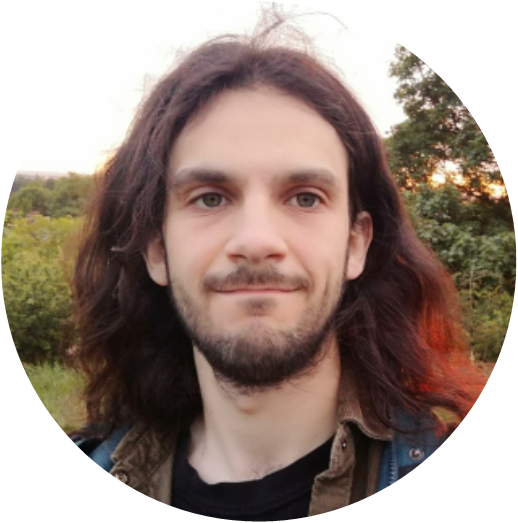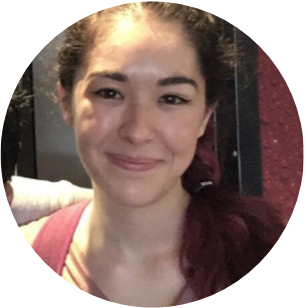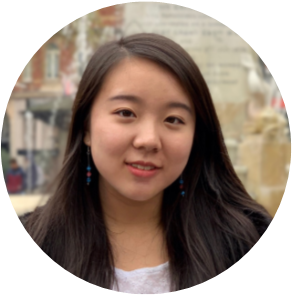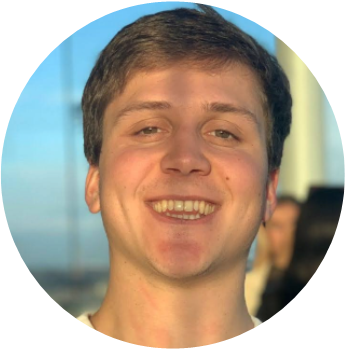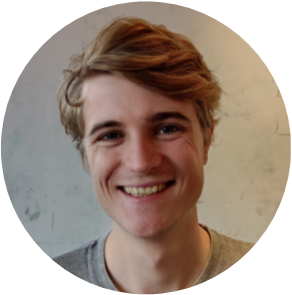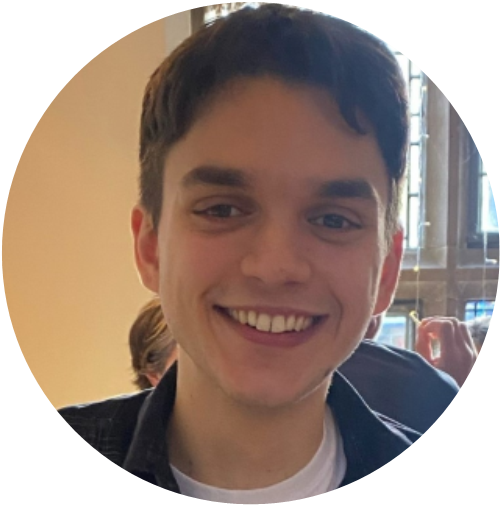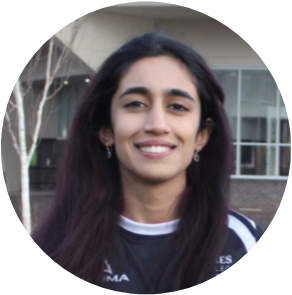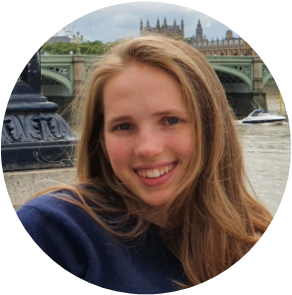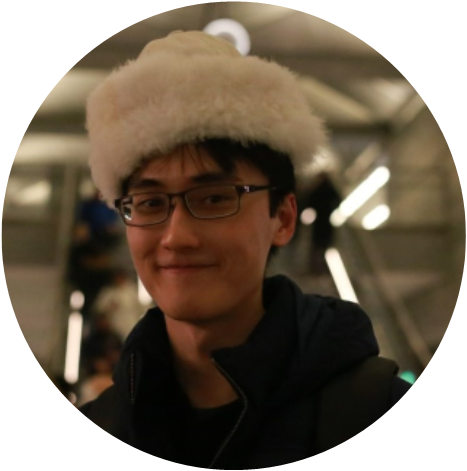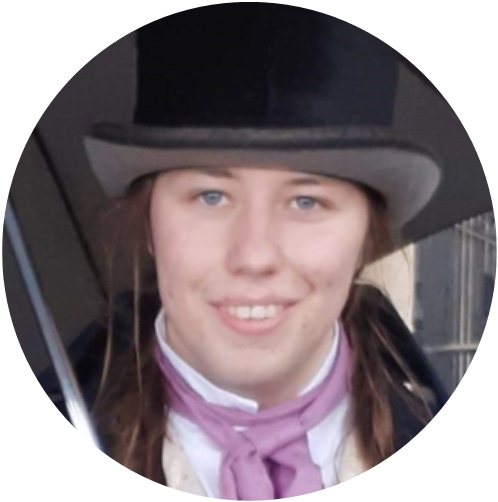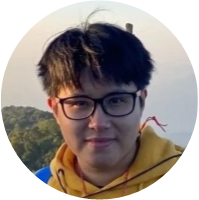2022/23 Cohort
-
Eesa Ali
Interfacing solid state single emitters with atomic quantum memories
Eesa graduated from the University of Cambridge in 2022 with an MSci. He undertook a master's project on the topic of single photon emitters in atomically thin transition metal dichalcogenides (a class of 2d material). His work on the project involved optimising an existing experimental setup and analyzing data to characterise the photoluminesence from various samples. He has a keen interest in quantum materials, quantum technologies and optics and is looking forward to developing skills in these areas, in preparation for a PhD. Outside of his studies, he enjoys gaming and metal music. -
Aliki Capatos
Tailoring Fault-Tolerant Architectures to Photonic Hardware
Starting out as a theoretical physicist, Aliki has since spent time playing with lasers and magneto optical traps in the lab. Graduating from Cardiff University with a project focussed on simulating quantum nanowire emitters, she completed a master’s project on PQR-branch spectroscopy for deep UV laser cooling and trapping of AlF with Imperial College London. She has worked on post-quantum cryptography, as it pertains to the Bitcoin network. Her interests now lie firmly in quantum computing, and plans to use the CDT to explore which exact aspect of this field she would like to pursue. She has a voracious appetite for research of all kinds and working with equally passionate people, particularly within an interdisciplinary environment. When not playing the cello, gaming, or climbing, she can be found enjoying a ribeye steak or wondering about in nature. -
Susan Chen
Non-local codes for Photonic Fault-Tolerant Architectures
Susan graduated from Imperial College London in 2022 with an MSci in Physics with Theoretical Physics. Her masters research focused on building a quantum state tomography framework based on Bayesian statistics and exploring its ability to distinguish states with low computational effort. Having also completed applied theory projects on the optimisation of quantum control landscapes as well as quantum memories during her undergraduate degree, she is keen to explore the field further during her PhD. In addition to physics, Susan enjoys science outreach, creating art and the occasional fingerstyle guitar. -
James Cockburn
Microwave to Optical Quantum Transduction
James graduated from The University of Sheffield in 2018 with a master's in Materials Science and Engineering. His research focused on cold sintering of YBa2Cu3O7 (YBCO), a high temperature superconductor. This emerging ceramic processing method aims to reduce sintering temperatures from ~1000C to 100-200C, improving manufacturability. For the past four years he has worked as an R&D and Applications Engineer in the precision devices division at Knowles Corporation. Here he worked primarily on ceramic development and designing ranges of multilayer ceramic capacitors, EMI filters and thin film RF devices. In his spare time James enjoys playing music, climbing, running and runs a small pop-up pizza business! -
Chris Corlett
Detailed Analysis of Arbitary Measurement Devices
Chris graduated with a masters in theoretical physics from the University of Manchester where he also spent a year abroad at the University of California, Berkeley. For his masters project, he studied open quantum systems and showed how entanglement can be generated between coupled qubits when a heat current passes across them. Since graduating in 2020, Chris has worked in the quantum computing industry as a software engineer for Oxford Quantum Circuits. He worked on a number of projects including compilers, web development and quantum simulations. Chris hopes to continue his studies of quantum theory and its applications to quantum computing, at the CDT with a focus on quantum information and quantum algorithms. In his spare time, Chris likes to climb, play the guitar and cook. -
Matthew Jones
Fast reprogrammable photonic experiments for quantum foundational studies
Matt graduated from the University of Bristol this year with an MSci in Physics. His final year research project was on the concept of time in quantum mechanics, looking at the quantum superposition of time’s arrows, specifically the superposition of forward and time-reversal thermodynamic processes. He is excited to apply his interest in quantum mechanics to the development of new technologies, and having mostly focused on theoretical physics he is keen to explore the experimental side of research. In his spare time he enjoys playing football, going to music events and playing the piano and saxophone. -
Zulekha Samiullah
Search for highly-entangled phases of matter in layered honeycomb materials
Zulekha graduated with an MSc in Mathematical Sciences from the University of York in 2022, having obtained a BSc in Mathematics and Physics also from York in 2021. Her masters year was specifically tailored to experience a broad reach of quantum applications, and she studied modules in field theory, mechanics and information. She spent the first half of her masters degree exploring classical integrable systems before switching to her current main focus, quantum stabilizer formalism. Despite her theoretical background, she is excited to enter the experimental world! In her spare time, she enjoys playing squash, cooking and engaging in public outreach. -
Hannah Seabrook
Exploring fundamental limits of quantum technologies through indefinite causality and quantum key distribution
Hannah graduated from the University of Cambridge in 2022 with an MSci in Physics. Her master’s year thesis was in medical physics using MRI coils to obtain localised measurements of creatine kinase in the heart. She undertook a 2-month internship at MPQ in Munich in 2021, where she designed a frequency-doubling UV cavity and built a magneto-optical trap breadboard for ultracold Rydberg atoms. This inspired her to pursue a PhD in quantum technology. Her current research interests are based in quantum computing, particularly the experimental development of quantum computers. She is looking forward to the CDT to learn about different areas of quantum technology research. Outside of physics, she enjoys going to the gym, watching F1, and playing board games. -
Ryan Tiew
Implementation of quantum LDPC codes and fault-tolerant logic gates in physical architectures
Ryan graduated from Imperial College London in 2022 with an Msci in Physics with Theoretical Physics. His master's project investigated the simulation of Majorana fermions and their detection using superconducting qubits. Working as a theorist in an experimental group provided him an opportunity to pursue research at the interface between theoretical and experimental Physics, which he hopes to further explore in the first year of the CDT. His interests lie mainly in quantum computation, algorithms, and simulations. Outside of Physics, Ryan enjoys cooking, baking, and travelling.
-
Hobbs Willett
QKD Satellite Ground Station
Hobbs has a particular interest in science that is disordered, messy, asymmetric and liberally fudge factored. This leads to his interest in the quantum biology, quantum metrology and open quantum systems, where the neat concise equations meet messy reality. He graduated from an integrated master’s in disordered optics from the University of Sheffield in 2020. Before this PhD he has been a CERN summer student in experimental software, technical assistant at Boulby underground laboratory, actor, bicycle mechanic and public optics demonstrator at science fairs. Outside of work hours he sews historical garments, builds bicycles, carves bows and runs tabletop rpg games. -
Panawat Wongklaew
Heralded single-photon source with on-chip heralding detector
Panawat graduated with an MSc in Physics from the University of Cambridge in 2021. In his masters project, he borrowed the analysis technique from differential dynamic microscopy to analyse a macroscopic phenomenon (videos of water surface waves). After graduation, he spent seven months in an effort to build Thailand's first atomic interferometry gravimeter at the Center of Excellence in Quantum Technology (formerly known as the Research Center in Quantum Technology) in Chiang Mai University. There, he worked on programming the FPGA device for controlling the gravimeter. With background mainly in programming and computing, he hopes to switch things up and gain more experimental experiences from the CDT. Outside of academia, Panawat is also a tea and craft beer enthusiast, a hiker, and an audiophile who enjoys hip-hop and metalcore music.
